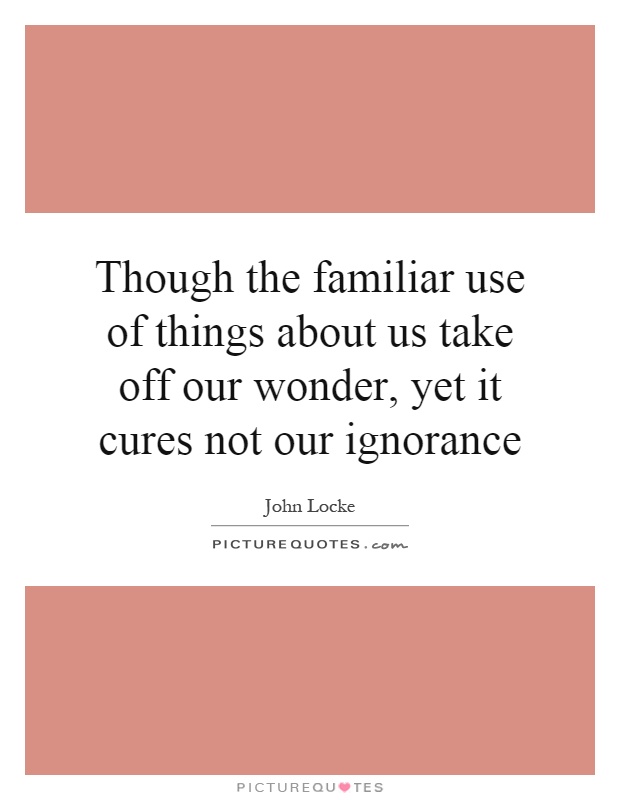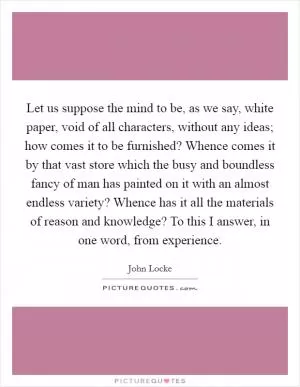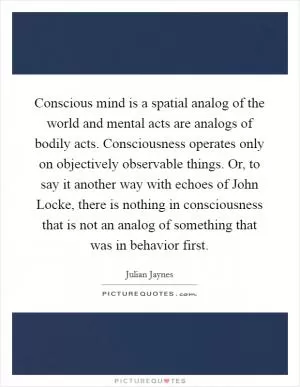Though the familiar use of things about us take off our wonder, yet it cures not our ignorance

Though the familiar use of things about us take off our wonder, yet it cures not our ignorance
John Locke, a prominent philosopher of the Enlightenment era, believed in the power of reason and empirical observation to gain knowledge and understanding of the world around us. In his essay "An Essay Concerning Human Understanding," Locke explores the idea that familiarity with everyday objects and experiences can diminish our sense of wonder, but it does not necessarily lead to true knowledge or understanding.Locke's statement, "Though the familiar use of things about us take off our wonder, yet it cures not our ignorance," suggests that while we may become accustomed to the objects and phenomena in our environment through repeated exposure and use, this familiarity does not necessarily lead to a deeper understanding of their underlying principles or mechanisms. In other words, simply being familiar with something does not equate to true knowledge or comprehension.
Locke believed that true knowledge could only be obtained through careful observation, experimentation, and rational inquiry. He argued that our senses are the primary source of knowledge, and that we must rely on empirical evidence and reason to form accurate beliefs about the world. While familiarity with objects and experiences may make them seem less mysterious or awe-inspiring, it does not necessarily lead to a deeper understanding of their nature or properties.
Locke's emphasis on the limitations of familiarity in curing ignorance highlights the importance of critical thinking and intellectual curiosity in the pursuit of knowledge. He believed that we must constantly question and challenge our assumptions, beliefs, and preconceptions in order to gain a more accurate and comprehensive understanding of the world. By acknowledging the limitations of familiarity in curing ignorance, Locke encourages us to remain open-minded, curious, and skeptical in our quest for knowledge.












 Friendship Quotes
Friendship Quotes Love Quotes
Love Quotes Life Quotes
Life Quotes Funny Quotes
Funny Quotes Motivational Quotes
Motivational Quotes Inspirational Quotes
Inspirational Quotes